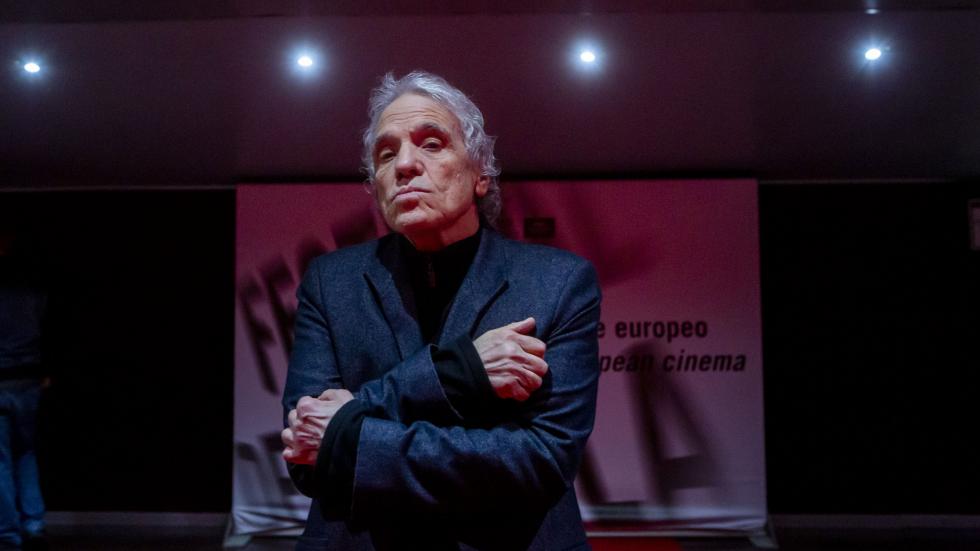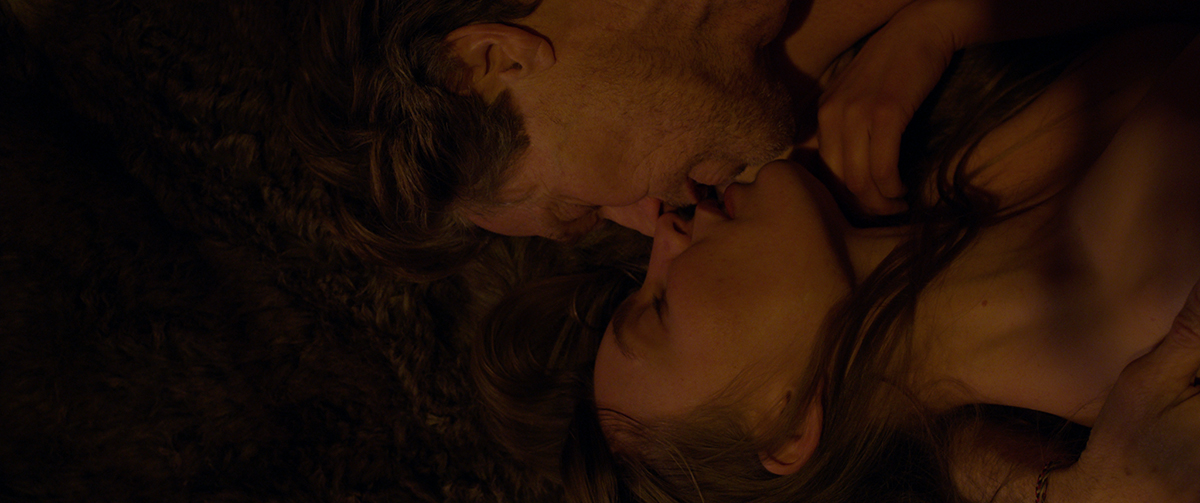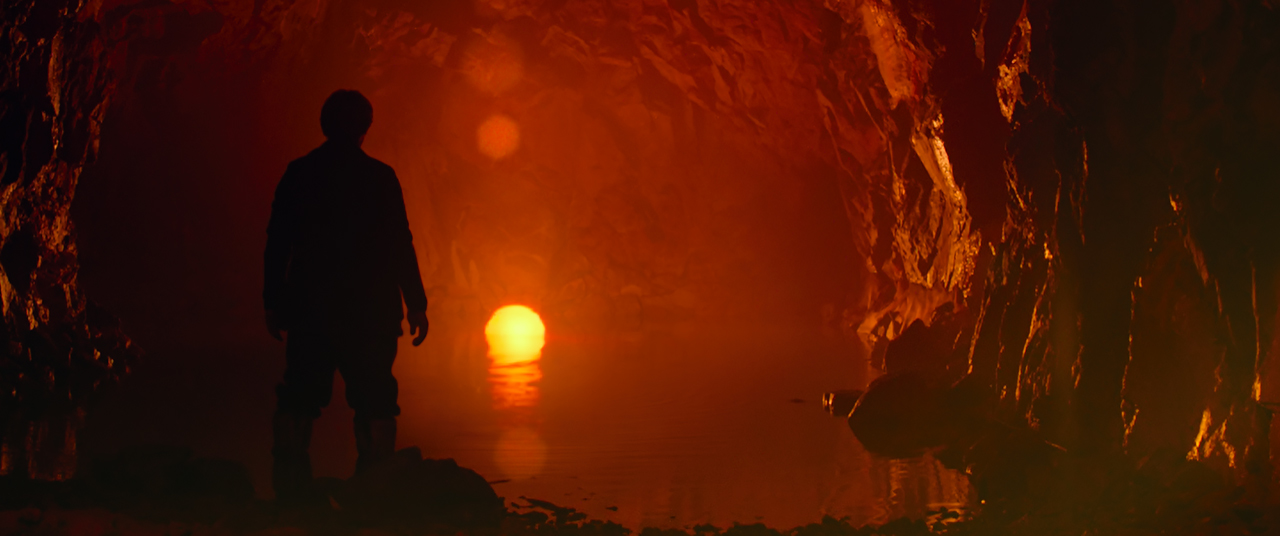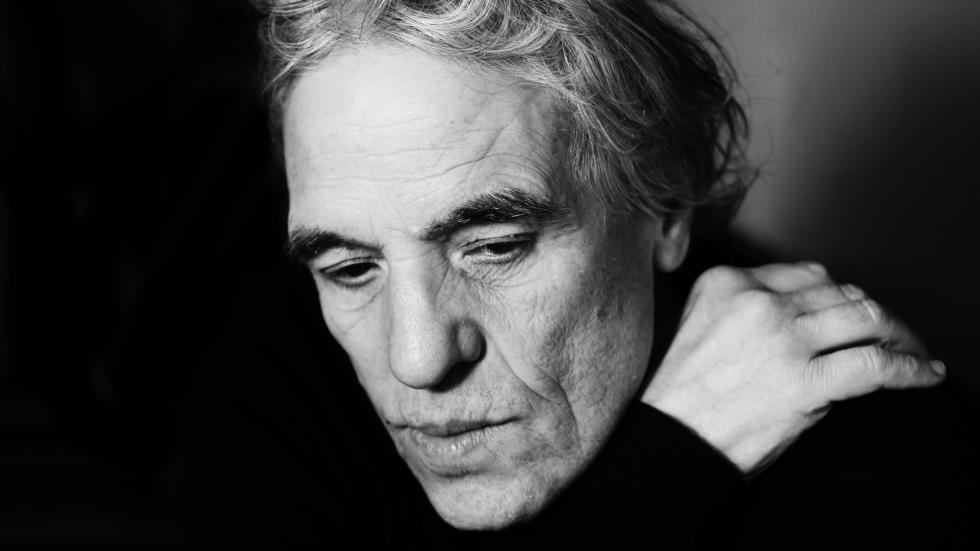After his visit last year, in which he presented Tommasso, Abel Ferrara became once again one of the protagonists of the Official Section at the SEFF 2020 presenting Siberia
Abel Ferrara (New York, 1951) is a legend of American independent cinema. Excessive, twisted, dark, extreme, his name reached the top with titles like King of New York (1990), Bad Lieutenant (1992), The Addiction (1995) or The Funeral (1996). Settled for a few years in Rome, away from the night, drugs and tolls of his hometown, Ferrara remains the same genuine and non-conformist filmmaker, although his conversion to Buddhism seems to have led him to a more spiritual and metaphysical cinema, and not so dependent on the entrails.
In his latest film, Siberia, which is part of the SEFF's Official Section, it proposes a journey into the depths of the protagonist's mind, brought to life by his now-fetish actor Willem Dafoe, in a collaboration that has resulted in five other films (Tommaso, Pasolini, 4:44 Last Day on Earth, Go Go Tales and New Rose Hotel). We took advantage of the presence of his film in the festival's program to scratch in the many interviews granted by Ferrara to outline, in six statements, the keys to his work.
THE FILM
"A film director is never completely independent. I'm not a fucking poet who expresses himself on a blank sheet of paper, nor am I painting a picture. A filmmaker must have a very clear vision of what he or she wants and how to get it, because film is first and foremost a collective work. I need the producers, the actors and the technical team. Making a film has never been easy. But on the other hand, cinema is pure expression, freedom. The purity of expression that connects people. It's about finding a balance between your vision and the work of your collaborators. My shootings are controlled chaos. I try to keep my energy up and shoot fast, be prepared for the moment, take advantage of inspiration, not be afraid of failure. When the moment comes, we are like jazz musicians, you know that what you do is not going to be repeated, so you have to make it work. It's a moment of great spiritual enjoyment and I don't like anyone interrupting it.

VERY PERSONAL FILMS
"You make movies about the things you know, and I guess you know yourself better than anything else. They say that if you want to change the world, the best thing to do is to stand in front of the mirror and start with what is reflected. So I say to myself that if I want to film the world I must also start with the person in the mirror. If a director is able to make a film that doesn't reflect his mood, he must be a genius, because I certainly don't understand how that can be done. All the films I make are very personal. There is not one that is above the others in this sense, because they are all registered from my reality. It's a matter of honesty. On the other hand, I love playing with genres. They give you a structure you can easily stick to and they also guide the viewer: a gangster film, a horror film, a western... I made a vampire film, The Addiction, and the grace is precisely its effectiveness in making an impact: it mixes the fable of someone who is able to feed on the blood of others and the fact that someone dies young and beautiful.
THE DRUGS
"I gave power to cocaine, to alcohol, to heroin. And I couldn't do anything without using. It took me a long time to get out of there. That stuff was killing me. I was in a rehab center, and I knew I had kicked the drugs out of my life when I got 40 days clean. Like the 40 days that Jesus walked in the desert. During that time I couldn't sleep more than five minutes. I had been using since I was 16, and there was so much to get out of my system. One day I was able to sleep... and I woke up nine hours later. We were on a farm, so I could hear the birds singing and the sound of nature early in the morning. And I felt so fucking good that it scared the shit out of me. I woke up without a hangover, without feeling sick. I felt like I was 15 again, and I was clean. I guess I'm alive by a miracle and quitting drugs has changed me profoundly. It is also true that without taking drugs I might not have made many of my movies, which were part of the way I lived, and the way I lived was under the influence of alcohol and hard drugs. So you can't separate one from the other. I wish I had been sober before, but I can't change the past, nor live with regret. I've given up all my addictions, except for the one on rolling, which I can't do without.

THE BEGINNINGS
"I wouldn't say that I was exemplary in going to class. At that point in your life you are not really prepared to be educated in a classroom, we were more focused on making movies and watching them, not necessarily in that order. A bunch of idiots would drive to New York and go to movies all day. I was a 19 or 20-year-old kid who already thought I was a top-notch filmmaker. But I didn't know shit. I had met Nicholas (St. John, his regular screenwriter until The Funeral in 1996) at 14 years old: I was a dumb suburban kid. I was born in the Bronx, but grew up in Peekskill, which was like the border between the suburbs and the countryside. He was from that part of town too. He wrote, he painted, he played the guitar. He taught us that you could be creative without driving cars, picking up girls. We got to make a porn film together, so I started in the cinema, directing Nine Lives of a Wet Pussy (signed with the pseudonym Jimmy Boy L). It was a chance to learn and get into the business. It was the only way that people like us, who were born outside the system, could open windows for us, as the doors were not open to us. Nicholas was a Christian believer, he didn't drink, he didn't do drugs, and when we started making money in the 1980s I started to lose control. Even more so in the 1990s. At one point he said enough. He walked away when he was at the peak of his buying power; it was never about money for him. Neither was it for me, but this business simply didn't have anything to offer anymore.
THE ACTORS OF FERRARA
"I've gotten along well with actors like Harvey Keitel, Christopher Walken, Lily Taylor and now Willem Dafoe. My job has always been to give them confidence so that they can be sure that everyone is behind them, that they know what the film is about, that they trust us to give it our all. But let's not kid ourselves, they were all great before I met them. I didn't open any doors for them. I just gave them the right characters. Most of the time, it's just about turning on the damn camera and letting them do what they know. I know they're movie stars, and people love them and they make a lot of money, but when it comes down to it, the camera focuses on them, they have all the pressure. Now they say that Willem is my muse, and yes, but he's more than that: he's my accomplice, my neighbor, my daughter's godfather. We're creatively connected."

FROM NEW YORK TO ROME
"Before, New York was a place you could go without a dollar in your pocket and find yourself. For many years it was the best place for an artist. Today it is a place where it is impossible to settle down unless you have a fortune. I am not interested in that poisonous atmosphere of Manhattan and I hate being harassed by young people who dream of being movie stars. The cold and aseptic New York of the 21st century does not suit me as well as the city I grew up in in the 70s and 80s... The dirty and violent New York of the 80s was a better place to live, more creative. At least I was having a better time. Maybe there was more violence and more blood, but I preferred it. Now I live in Rome, and the city is cool. There's no economic pressure, it's easy to survive, the people are friendly. The city is beautiful. Rome is culture. And I'm also aware that the further I get away from my country, the more supporters I find, the more they appreciate my work. Don't ask me why, but that's the harsh truth".



